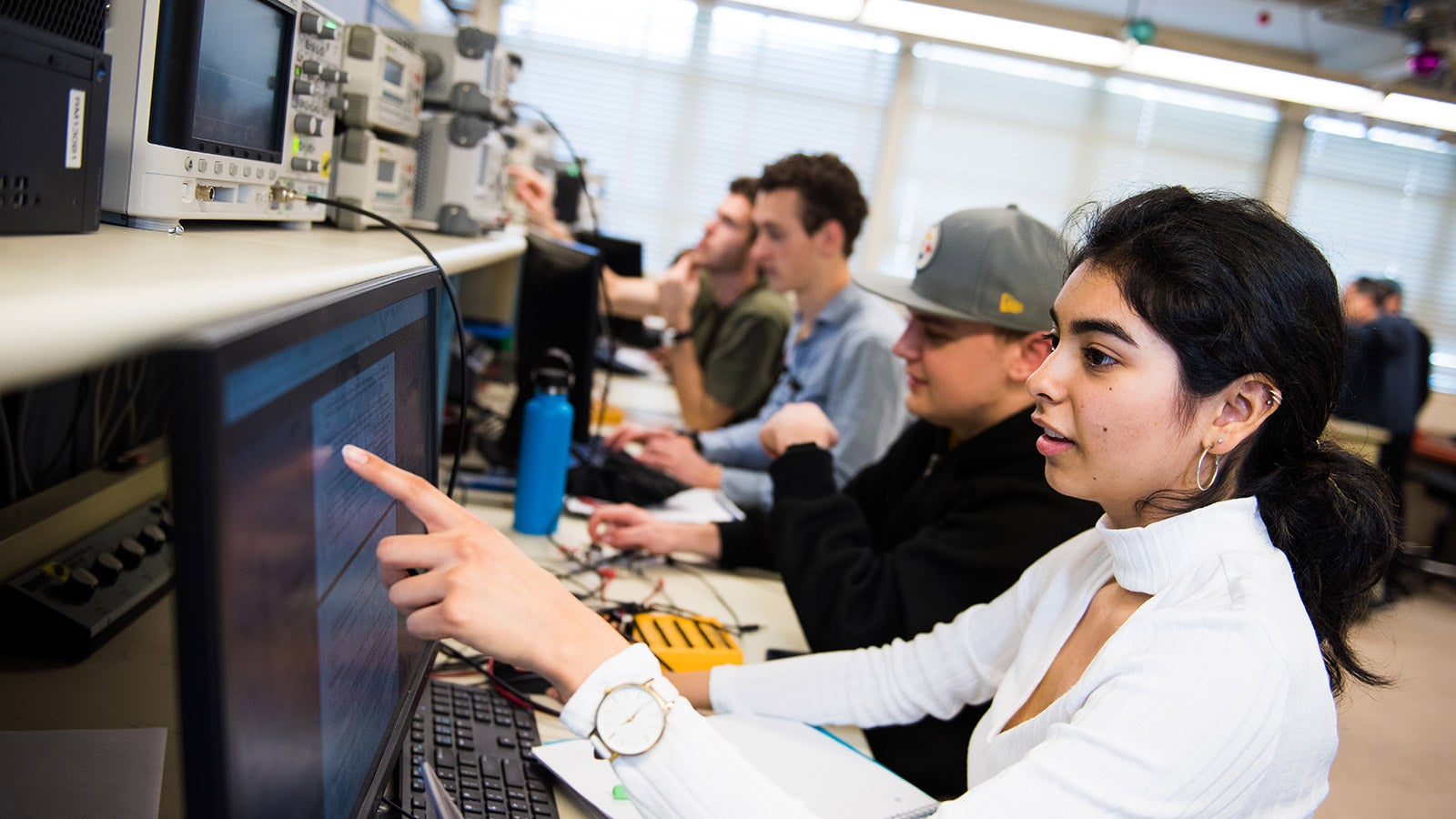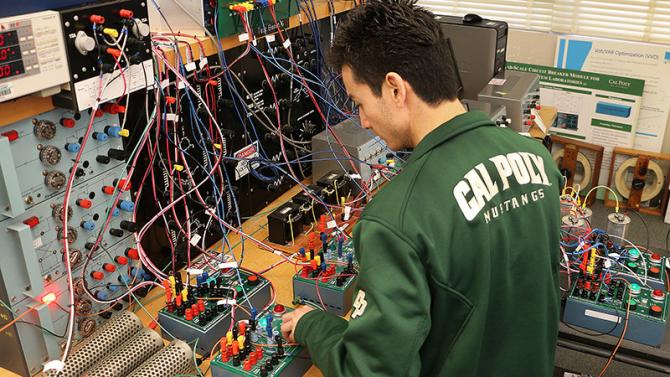Electrical Engineering
College of Engineering
Electrical engineers design, develop and build a wide range of electrical equipment including computers, electronic devices, communication systems, test equipment, electric power networks and more.
San Luis Obispo, California
The electrical engineering curriculum provides a sound theoretical background along with current, practical engineering knowledge. You will gain a basic understanding of electrical engineering along with a foundation of physical science, mathematics, computing and technology.
Opportunities are available for undergraduate and graduate work in many fields of interest, with the following laboratories available for course work and research projects:
- Advanced Communications Systems Lab
- Antenna Anechoic Chamber Lab
- Basic Circuits and Electronics Lab
- Capstone Lab
- Computational Intelligence Lab
- Computer Design Lab
- Controls Lab
- Digital Systems Design Lab
- EE Student Project Lab
- Electrical Engineering Technical Support Lab
- ElectroMagnetic Compatibility (EMC) Chamber Lab
- Embedded Systems Lab
- Energy Conversion Lab
- General Project Room
- Multidisciplinary Projects Lab
- Photonics Lab
- Polymer Electronics Lab
- Power Electronics Lab
- Power Senior Project Lab/Remote Tech Group/Electric Power Institute
- Research/Projects/ElectroChemical Engineering Lab
- RF Microwave Lab
- Sustainable Energy Lab
- Systems and Communications Lab
- The Big "E"
- W6BHZ station
While not formal concentrations, you will choose technical electives to gain additional expertise in one or more areas of specialization including computers, electronics, microwaves, power and systems.
Electrical Engineering majors are able to participate in a blended program where you can earn your bachelor's and master's degrees at the same time.
Choose from our two blended programs, BS in Electrical Engineering and MS in Biomedical Engineering or BS in Electrical Engineering and MS Electrical Engineering.
About the Program

Electrical engineering will teach you the skills needed to design devices that are powered by or produce electricity.
You will immediately begin working in the lab, learning how to design and develop circuits to perform specific functions and to predict how they will behave. Technical electives allow you to gain additional expertise in one or more areas of specialization including electronic devices, computers and systems for communication, controls, information processing and display and system instrumentation. The program is accredited by the Engineering Accreditation Commission of ABET and is the top ranked program in California and second in the nation by U.S. News & World Report.
Learn by Doing
By gaining a knowledge around the design and application of circuits, you will be able to design electrical devices and systems in a wide-range of projects. This could mean developing low-cost, sustainable sources of electrical power or enabling seamless interfaces between humans and machines to meet the future of computing.

Work with a Microgrid
Our Graduates
Electrical engineering graduates work for a variety of industries including electrical components and computer equipment manufacturers, medical and scientific instruments, transportation, communication, computer-related sectors, the federal government, electric utility companies and engineering consulting firms.
